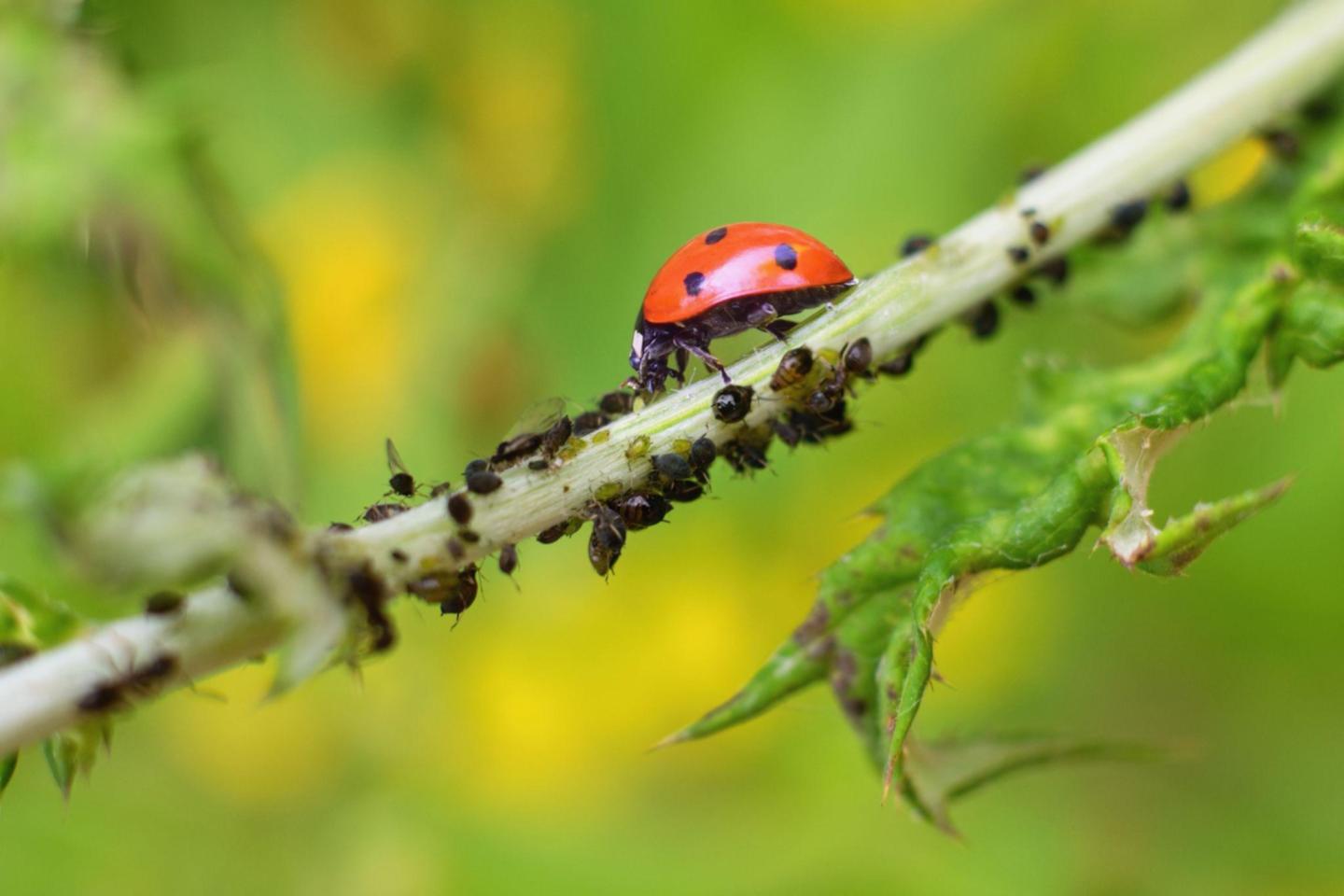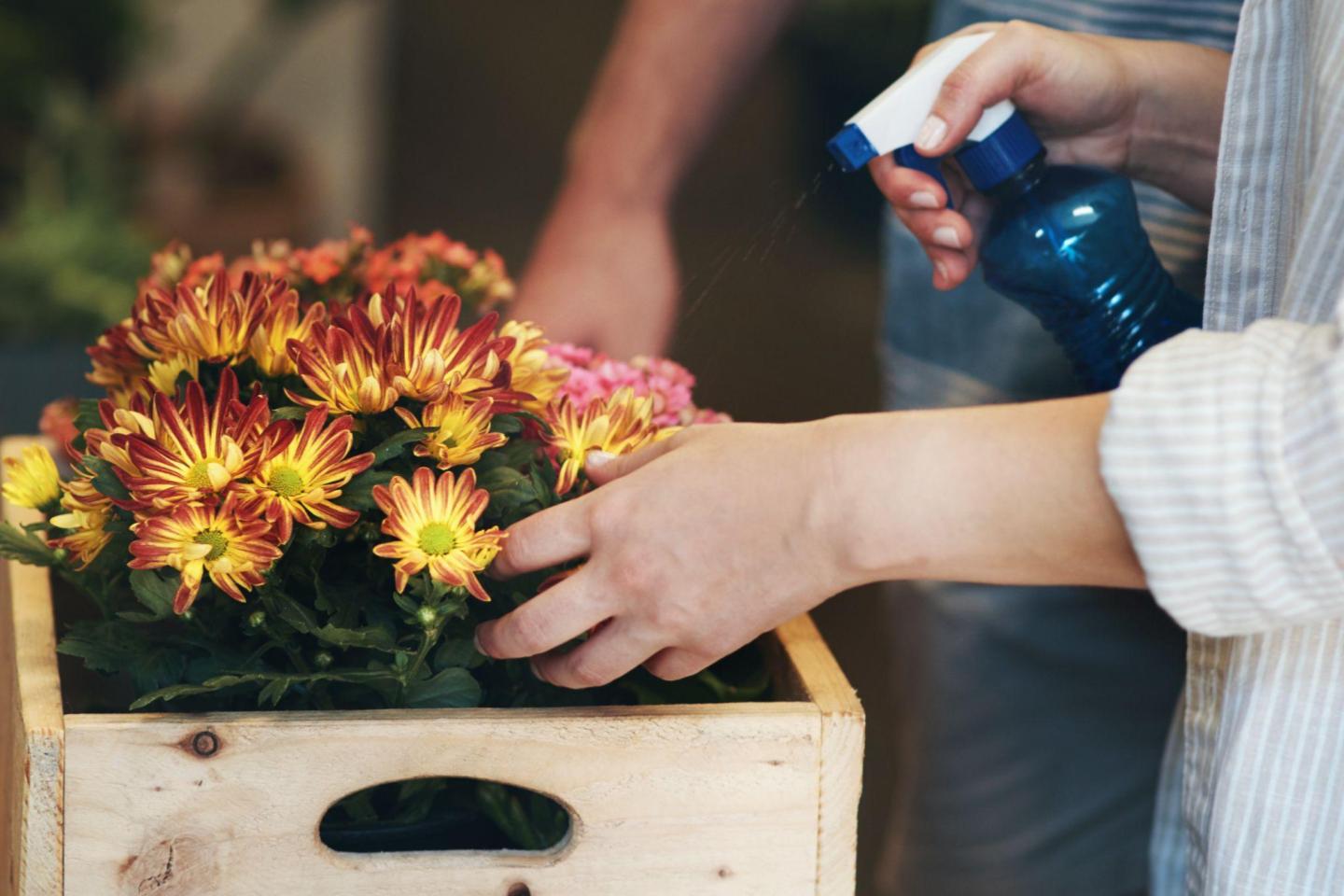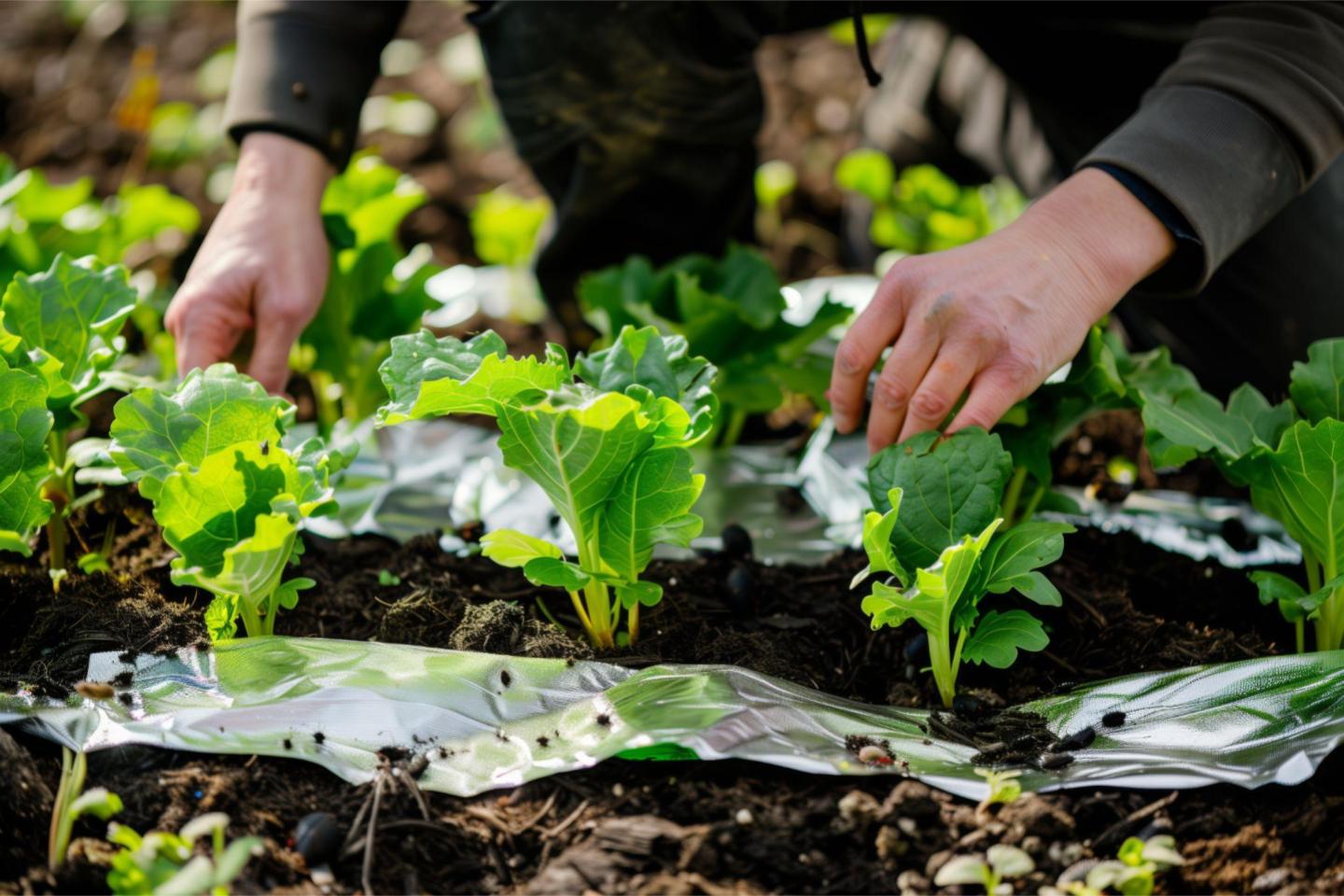
Aphids, often referred to as "plant lice," are small, soft-bodied insects that feed on the sap of plants. They are among the most common pests gardeners encounter, capable of infesting a wide variety of plants, from ornamentals to vegetables. Their rapid reproduction rate and ability to cause significant damage make them a formidable adversary in the garden.
Understanding Aphids
Aphids are typically less than 1/4 inch long and can be green, black, brown, yellow, or even pink, depending on the species and their food source. They congregate on the undersides of leaves, stems, and buds, where they suck plant sap. This feeding can lead to distorted growth, yellowing leaves, and a general decline in plant vigor. Additionally, aphids excrete a sticky substance known as honeydew, which can attract other pests and lead to the growth of sooty mold, further hindering photosynthesis.
Natural Predators: Nature's Aphid Control
One of the most effective natural methods to control aphid populations is by encouraging their natural predators:
Ladybugs (Ladybird Beetles)
Both adult and larval stages of ladybugs are voracious aphid consumers. Introducing ladybugs into your garden can significantly reduce aphid numbers.

Green Lacewings
The larvae of green lacewings, often called "aphid lions," feed aggressively on aphids. Planting flowers like yarrow and dill can attract these beneficial insects.
Parasitic Wasps
These tiny wasps lay their eggs inside aphids. As the larvae develop, they consume the aphid from within, effectively controlling their population.
Companion Planting: A Strategic Approach
Companion planting involves growing certain plants together to naturally repel pests or attract beneficial insects:
Nasturtiums
Acting as a trap crop, nasturtiums attract aphids away from other plants. Once infested, these sacrificial plants can be removed, taking the aphids with them.
Chives
The strong scent of chives deters aphids. Planting chives near susceptible plants like roses and tomatoes can help keep aphid populations in check.
Marigolds
Known for their pest-repelling properties, marigolds can deter various pests, including aphids when planted throughout the garden.
Physical Removal Methods
For minor infestations, physical removal can be effective:
Water Spray
A strong jet of water can dislodge aphids from plants. Regular spraying can reduce their numbers without harming the plant.
Handpicking
Wearing gloves, gardeners can manually remove aphids from plants, especially when infestations are localized.
Natural Sprays and Solutions
Several natural concoctions can deter or eliminate aphids:
Neem Oil
Extracted from the neem tree, this oil acts as an insect repellent and growth inhibitor for aphids. When sprayed on affected plants, it disrupts the aphids' life cycle.

Insecticidal Soaps
These soaps penetrate the aphids' soft bodies, leading to dehydration and death. They are effective yet gentle on plants.
Essential Oils
Oils like peppermint, clove, and rosemary can repel aphids. Diluting a few drops in water and spraying on plants can serve as a deterrent.
Reflective Mulches
Using reflective materials around plants can confuse and deter aphids:
Aluminum Foil or Reflective Mulch
Placing these materials at the base of plants reflects light, making it harder for aphids to locate their host plants.

Maintaining Plant Health
Healthy plants are more resilient to pest infestations:
Proper Watering and Fertilization
Ensuring plants receive adequate water and nutrients strengthens their natural defenses against pests.
Pruning
Regularly removing infested or dead plant parts can prevent aphid populations from spreading.
The Role of Ants in Aphid Infestations
Ants and aphids share a mutualistic relationship. Ants protect aphids from predators in exchange for honeydew. Controlling ant populations can, therefore, aid in managing aphid infestations.
Chemical Control: A Last Resort
While natural methods are preferable, severe infestations might require chemical interventions:
Imidacloprid
A systemic insecticide that, when applied to the soil, is absorbed by plants, making their sap toxic to aphids. Caution is advised due to its potential impact on beneficial insects.
Pyrethrins
Natural insecticides derived from chrysanthemum flowers, effective against aphids but should be used sparingly to minimize harm to non-target species.
Final Thoughts: Winning the Battle Against Aphids
Managing aphids naturally is entirely possible with the right combination of natural predators, companion planting, and organic pest control sprays. Whether you're relying on ladybugs, neem oil, or reflective mulches, persistence is key. For a ready-to-use, eco-friendly solution, DeHaat Bageecha Health 360 offers an effective and sustainable way to keep aphids at bay while protecting your plants naturally.
By incorporating these methods, you can create a healthier, pest-free garden while supporting biodiversity and maintaining soil health. Say goodbye to aphid invasions the natural way!
Choosing the Best Insecticide for Aphids
While natural remedies work well in most cases, some infestations demand stronger solutions. If you're looking for the best insecticide for aphids, consider options that are safe for plants, non-toxic to beneficial insects, and eco-friendly. Many insecticidal soaps, neem oil formulations, and botanical extracts provide effective control without harming pollinators or other beneficial species.
One such excellent solution is DeHaat Bageecha Health 360, a 100% natural plant-based pest control spray. It effectively repels aphids while being safe for beneficial insects like ladybugs and pollinators. This botanical extract-based formula is an ideal choice for gardeners who want sustainable and safe plant protection without resorting to harsh chemicals.
FAQs
1. How do I know if my plants have an aphid infestation?
Aphids are usually found in clusters on new growth, the undersides of leaves, or along stems. Signs of an infestation include curled or yellowing leaves, sticky honeydew deposits, and sooty mold.
2. What is the best insecticide for aphids that won’t harm pollinators?
Neem oil, insecticidal soaps, and botanical-based products like DeHaat Bageecha Health 360 are excellent options. These insecticides control aphids without harming bees and butterflies.
3. How fast do aphids reproduce?
Aphids reproduce rapidly, with some species giving birth to live young without mating. In ideal conditions, a single aphid can lead to hundreds of offspring in just a few weeks.
4. Can aphids survive winter?
Yes, some aphid species lay eggs that can survive winter and hatch in spring. Others may overwinter on plant debris or in greenhouses.
5. Will homemade sprays kill aphids effectively?
Yes, homemade sprays like diluted neem oil, insecticidal soap, or essential oil solutions can effectively reduce aphid populations when applied consistently.



